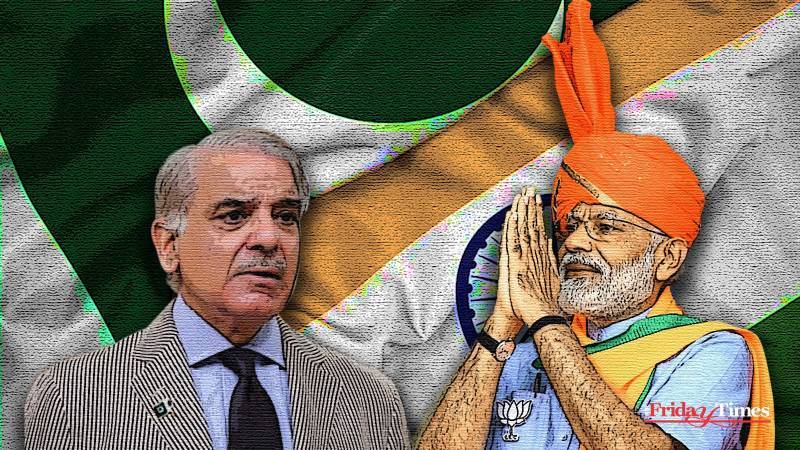
Pakistan and India have been enemies since the day they were born. The growing gap in power between these two belligerents may soon tip the balances irrevocably in India’s favour. However, both suffer from particularly inept leadership, intent on implementing as many self-destructive policies as possible. As such, their conflict is best described as a race to the bottom.
Pakistan finds itself allied to China while still desperately trying to maintain ties with America, which is intent on arming India as a counter to China. As usual, America’s appetite to sell its tools of death has trumped all rational thought of avoiding an arms race between these old foes. Though intended to deter China, the weapons it sells to India are far more likely to be used against Lahore than Beijing.
As it spends billions arming itself, India’s political culture is becoming more extreme by the day. Its recently constructed parliament building went so far as to include a map of “Akhand Bharat,” a united Subcontinent depicting Pakistan and India as one nation, presumably ruled by the Bharatiya Janata Party (BJP) in New Delhi. Narendra Modi and his acolytes are sowing seeds that will eventually tear their heterogeneous union apart but seem intent on dragging the region into a war first.
Given their growing disparity in power, Pakistan is destined to lose this war unless it makes some serious changes. India’s leaders are certainly inept, but Pakistan’s leaders could teach classes on the subject. Pakistan’s military is the nation’s primary political and economic power.
In addition to its feud with India, Pakistan finds itself struggling with complicated internal insurgencies in two provinces, suffocating poverty resulting from its backward economy and massive socio-economic underdevelopment, which has also contributed to rapid population growth. Its booming population has undermined Pakistan’s fragile environment and made it more vulnerable to climate change-related disasters and water shortages.
Despite these looming threats, Pakistan’s generals and feudal lords refuse to give up their power. Instead of making the desperately needed changes to improve their economic, technological, and military abilities, Pakistan’s leaders have opted to create a neo-colonial relationship with China. As India’s military and technological power grows, Pakistan’s position weakens.
Justice and logic both demand the territory either be given its independence or allowed to join Pakistan. The fact that those portions of Kashmir governed by Pakistan have not rebelled like those occupied by India merely illustrates the unjust nature of India’s claim and its brutal actions in defense thereof
At the heart of this conflict lies Kashmir. The only Muslim majority state in India and desperate to be rid of New Delhi’s brutal rule. Indian security forces have killed roughly 100,000 Kashmiris since 1989 while blinding, maiming, or abusing countless others. Many of the dead are buried in shallow, unmarked graves in the province’s thick forests. Torture, rape, and extrajudicial murder are systematically employed.
It should be obvious from the amount of violence that has gripped the province for decades that Kashmiris have no desire to remain a part of India. The very basis for Partition was to provide Muslim-majority territories with a separate homeland precisely to avoid the sort of bloodshed that consumed this territory, which proves that Kashmir was never meant to be a part of India. Justice and logic both demand the territory either be given its independence or allowed to join Pakistan. The fact that those portions of Kashmir governed by Pakistan have not rebelled like those occupied by India merely illustrates the unjust nature of India’s claim and its brutal actions in defense thereof.
While claiming to be the world’s largest democracy, it denies millions of people their most basic democratic right – to live under a government of their choosing. Kashmir is a definable territory with a long history as a unified cultural and linguistic entity. Its people have just as much right to decide for themselves if they wish to remain a part of India as the Scots of the United Kingdom do. The fact that the latter have been allowed to exercise this right in free and fair elections while the former have not, explains why Scots have not revolted against the English for centuries and why Kashmiris have been forced to rebel against India.
From a more practical perspective, securing Kashmir is vital to Pakistan’s defence and survival. Its national security requires Kashmir to remain free from hostile powers, and the rivers that feed into its lands are never diverted. As India contains nearly six times as many people and four times as much land as its western neighbour, Pakistan will never present a mortal threat to India. India, however, does present a mortal threat to Pakistan. Its possession of Kashmir represents a knife to the throat no nation can reasonably be expected to abide. Pakistan’s leaders must find a way to remove the blade without triggering a wider war.
Unfortunately, neither side will ever agree to the most obvious compromise: a demilitarized, united and independent Kashmir linked to both Pakistan and India via free trade and water usage agreements that would allow Kashmiris to develop strong economic ties with both nations while paving the way for a broader rapprochement between them. In the absence of logic, the Subcontinent will remain mired in conflict for the foreseeable future and the trajectory of this conflict dramatically favours India.

